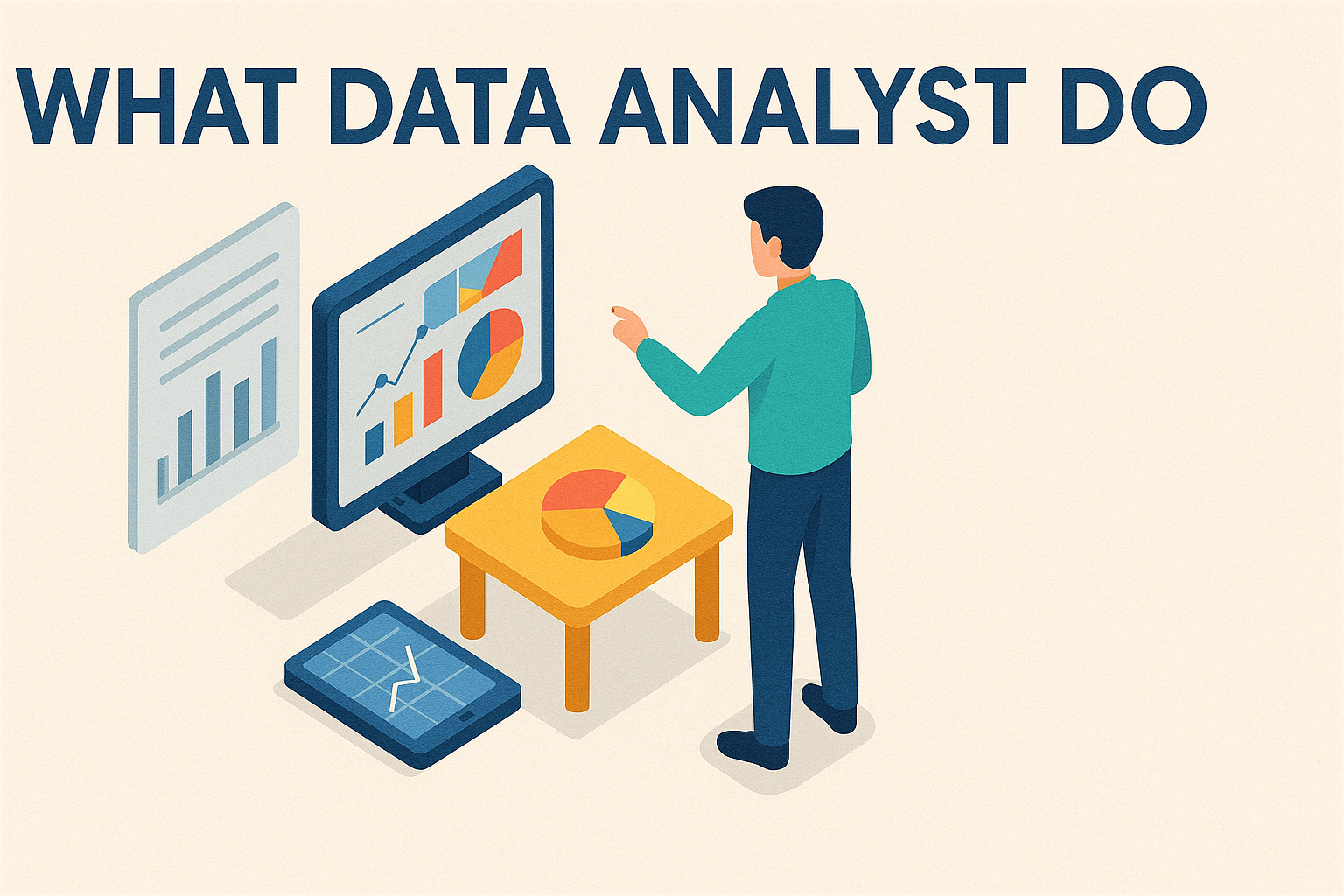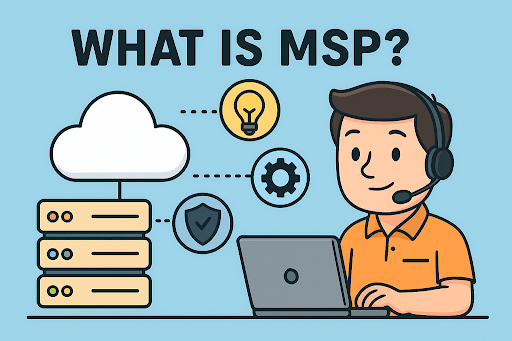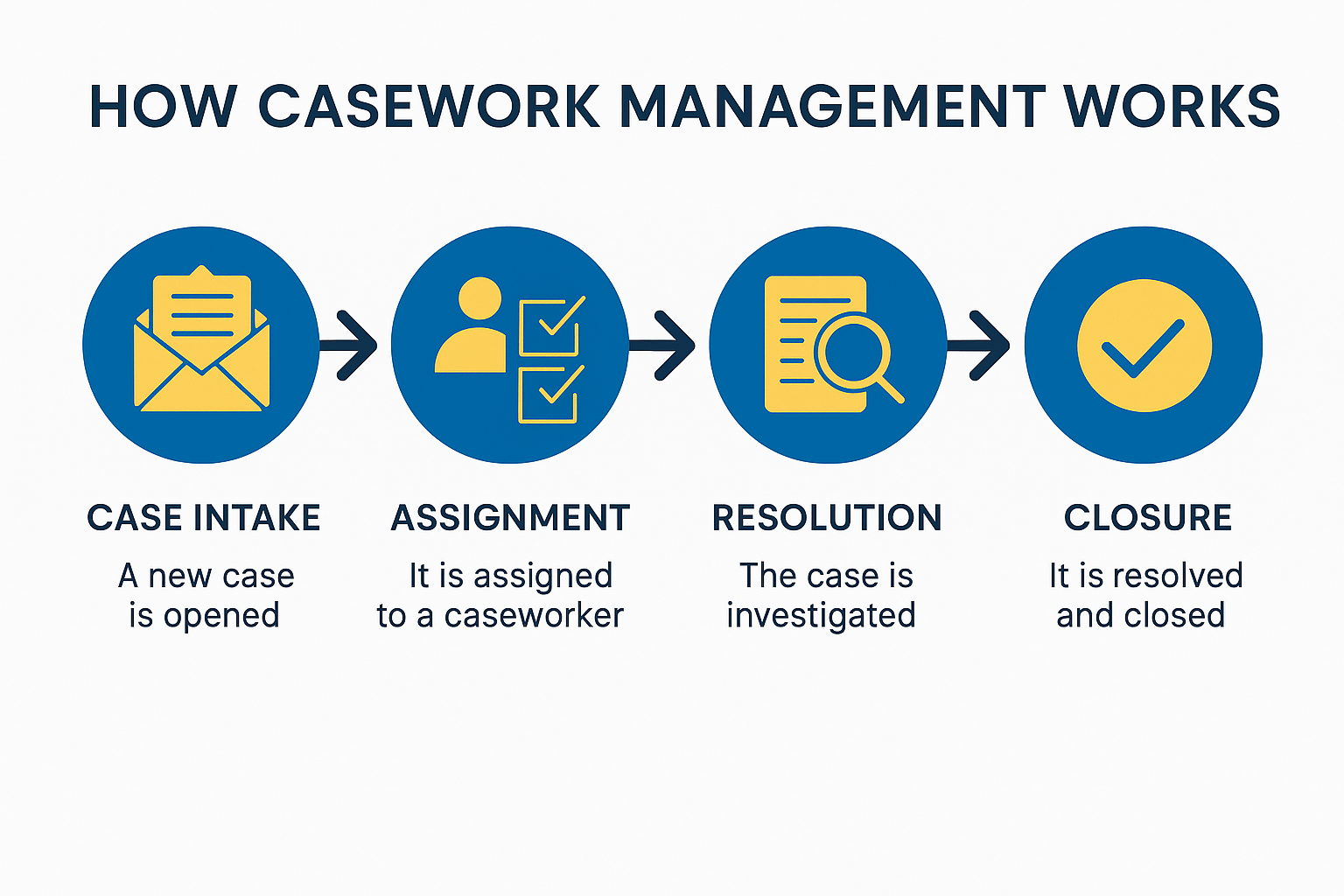What Data Analyst Do: A Complete Guide for Business Leaders and IT Managers
Updated on August 25, 2025, by Xcitium

Every business today collects data — from customer behavior and financial transactions to cybersecurity logs. But the real question is: what data analyst do with all that information?
According to Gartner, over 70% of business decisions will be data-driven. This means data analysts are no longer just “number crunchers.” They are the strategic interpreters of information, turning raw numbers into insights that drive growth, improve security, and guide executives.
For IT managers, cybersecurity leaders, and CEOs, understanding what data analysts do is crucial for leveraging data to enhance efficiency, reduce risk, and maintain competitive advantage.
What Data Analyst Do: A Simple Definition
A data analyst is a professional who collects, processes, and interprets data to help organizations make informed decisions. Their role is to transform raw numbers into actionable business insights.
Core Responsibilities:
- Collect and clean datasets.
- Identify patterns and trends.
- Use statistical tools to interpret results.
- Create dashboards and reports for decision-makers.
- Collaborate with IT and cybersecurity teams to ensure data integrity.
In short, data analysts act as the bridge between raw data and strategic business decisions.
Why Businesses Rely on Data Analysts
So, why should CEOs and IT managers care about what data analysts do? Because data without analysis is useless.
Business Impact:
- Cybersecurity: Detecting anomalies in network logs to prevent attacks.
- Finance: Forecasting revenue and optimizing budgets.
- Operations: Improving efficiency in supply chain and workflows.
- Customer Insights: Understanding buying patterns to boost sales.
Every department benefits from accurate data analysis — but only if skilled analysts interpret it correctly.
Day-to-Day Tasks: What Data Analyst Do in Practice
To truly understand what data analyst do, let’s explore their daily responsibilities.
1. Data Collection & Cleaning
Analysts gather information from databases, spreadsheets, or APIs. They then clean the data by removing duplicates, fixing errors, and formatting consistently.
2. Exploratory Data Analysis (EDA)
Using tools like Excel, SQL, Python, or R, they identify initial patterns or outliers.
3. Data Visualization
They create dashboards and charts using tools like Tableau or Power BI to make complex data understandable for executives.
4. Reporting & Communication
Analysts present findings in meetings, highlighting actionable recommendations instead of just raw stats.
5. Collaboration with IT & Security Teams
In cybersecurity, they monitor logs, identify unusual login attempts, and provide data-backed alerts to IT managers.
Essential Skills Every Data Analyst Needs
Understanding what data analysts do also means recognizing the skills required:
- Technical Skills
- SQL for querying databases
- Python/R for statistical analysis
- Excel for quick modeling
- Tableau/Power BI for visualization
- Analytical Skills
- Critical thinking
- Problem-solving
- Pattern recognition
- Business Acumen
- Understanding industry trends
- Aligning analysis with business goals
- Communication Skills
- Translating technical findings into business language
What Data Analyst Do in Cybersecurity
Cybersecurity is one of the fastest-growing areas where data analysts play a key role.
- Threat Detection: Identifying abnormal activity in logs.
- Incident Response: Providing data-backed insights during breaches.
- Risk Management: Forecasting vulnerabilities before they’re exploited.
- Compliance: Ensuring businesses meet GDPR, HIPAA, and other data protection standards.
For IT managers, having analysts focused on cybersecurity analytics can reduce downtime, prevent breaches, and save millions in potential losses.
The Tools Data Analysts Use
To do their job effectively, analysts rely on a suite of tools:
- Database Tools: SQL, Oracle, MySQL
- Programming Languages: Python, R, SAS
- Visualization Tools: Tableau, Power BI, Looker
- Big Data Platforms: Hadoop, Spark
- Cybersecurity Tools: SIEM (Security Information and Event Management) systems
Challenges Data Analysts Face
While data analysts are invaluable, they face challenges:
- Data Quality Issues: Incomplete or inconsistent datasets.
- Siloed Information: Lack of collaboration across departments.
- Security Concerns: Protecting sensitive information while analyzing.
- Overload of Data: Too much information without clear focus.
For executives, solving these challenges means investing in strong data governance policies and cross-department collaboration.
Future of Data Analysis
The role of data analysts is evolving with AI and machine learning. By 2030:
- Automated Analytics: AI will handle repetitive tasks, freeing analysts for strategy.
- Predictive Models: Businesses will forecast risks with higher accuracy.
- Integration with Cybersecurity: Data analysts will be frontline defenders.
- Industry Expansion: Every industry — from finance to healthcare — will rely on data analysts.
FAQs: What Data Analyst Do
- What does a data analyst do daily?
They collect, clean, and analyze data, then present insights through dashboards or reports. - Do data analysts code?
Yes, many use SQL, Python, or R for advanced data manipulation. - How do data analysts help cybersecurity?
By spotting unusual patterns in data logs and supporting risk management. - What’s the difference between a data analyst and data scientist?
Analysts interpret existing data, while scientists build predictive models and advanced AI systems. - Is data analysis a good career?
Yes, it’s one of the fastest-growing fields with high demand across industries.
Conclusion: Why Understanding What Data Analyst Do Matters
In a world powered by data, knowing what data analyst do is essential for CEOs, IT managers, and cybersecurity leaders. They transform raw information into actionable insights, strengthen cybersecurity, and help businesses stay competitive.
If you’re ready to harness the power of data securely, Request a Free Demo from Xcitium today and discover how advanced analytics and cybersecurity tools can protect and grow your organization.















